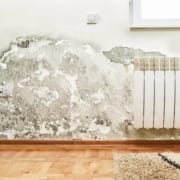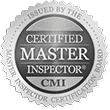Buying a House With Mold
House hunting can be enjoyable and stressful at the same time. It becomes even trickier when you find a home you really love and the home inspection shows there are issues and possible mold in the home. Do you walk away from buying a house with mold? Or do you have it tested and continue with the buying process?
Let’s take a look at the options.
Are You Buying a House with Mold? Get it Tested First
If the inspection report shows there may be mold, you need a mold test to know for sure. Home inspectors are not mold inspectors but some home inspection companies have mold inspectors on staff so you can ask.
After the company you choose tests for mold, results are sent to a lab for review and then they will give the final answer. Once lab results are in, you need a licensed mold assessor in Florida (or the state where your home is) to review and write protocols on how to remediate. The assessor may work for the home inspection company you chose or you need to look for a reputable company that has licensed mold assessors on staff. Then, a remediation company can come in to do the repairs. If it comes back that there is mold, it is a toss-up whether to buy the home.
There are all different kinds of mold out there and they affect people differently. Some molds, even when the home is mitigated, will still irritate family members and cause health issues, no matter if you get it out of the home. While on the other hand, some mold is small enough that it can be taken care of and the culprit can be fixed.

There is Mold, Now What
The mold inspection test comes back positive for mold. The licensed inspector will provide a report about the type of mold and the amount of space it covers. If it is less than 10 square feet or 5×2 area space, you can clean it easily. However, if it is more than 10 square feet, there is an issue and mitigation may or may not be needed. Knowing the answers to these questions will help you decide if it is smart buying a house with mold.
Cause of the Mold
The licensed mold inspector should be able to tell you what is causing the mold. It can be:
A leaky window – the seals may be worn down or the window doesn’t close all the way.
Negative grading in the yard – we aren’t talking about grades of A’s and F’s, we are referring to the slope of the land. The slope needs to go away from the home so the water drainage is toward the street.
Drainage in the yard is bad – this can also cause structural and foundation issues and allow for you to be able to walk away from the home.
There is a water leak inside the wall . This can be hard to see and you will need to have a home inspector check it out further.

Issues on the Top of the House
Clogged gutters – these allow water to run into the home and cause mold to grow where the water leaks in.
Eaves on the home are leaking and need fixing so water is not getting too close to the house.
Downspouts are not far enough away from the home. They should extend at least 6 feet but 10 feet is ideal to carry the water away from the home.
Crawlspace and Attic Issues
Crawlspace– the crawl space is a high humidity area and can have mold growth. However, this can often be taken care of easily.
Mold in the attic– mold can grow in the attic due to moisture because of leaks in the ceiling. Humid air in the home going into a low humid attic can cause moisture. Just like the crawl space, this is common and can be fixed.
Other Causes of Mold
Flooding– sometimes there is flooding that has occurred in the area. Asking the licensed mold assessor or the home inspector if this may be the one-time issue that caused the mold growth is a good idea.
Air handler leaking water– if the air handler or AC unit is clogging or having issues with running, it can leak water. This will be the start of the mold growth.
Who Pays to Get Rid of the Mold
If it is found during the home inspection that the buyer paid for, the seller should pay for the removal of the mold. However, they are not required to (depending on state rules.) This is where the buyer can have the upper hand and ask for a negotiation of the sale price of the home. The seller can say, “yes” and pay for it or take the amount it will cost off the sale price or the seller can say, “no” and leave the sale price as is.
This is why having a realtor is a good idea so they can help you negotiate and counter offer.
Remember that getting rid of the mold is great, but you need to know what caused it. Once you know what caused it, you can fix it. If not, then you are just putting a bandied over it and it will be back. Contact a professional to find the source and to quote a price to fix it. This can also be negotiated.
If You Are the Seller
Check your attic and crawlspace first before putting your house up for sale as these are the places where the mold occurs more frequently.
Walk around the home and take a look to see if mold is growing in any of the rooms or they smell musty.
Pre-listing inspection if you suspect mold in the home –this will allow you to know what is going on in the home that maybe you can’t see before you list the home for sale.
Buying a House with Mold Can Cause Appraisal Issues
Depending on the type of mold and the amount, it could lower the value of the home. This could also cause a lender to back out and not loan you the money. Furthermore, check with lenders before you really love a home to make sure that they will still finance a loan for you if there is mold in the home.
Get an Estimate of the Cost to Remove the Mold
Mold removal can vary from hundreds of dollars to over thousands. The amount may be more than you are willing to pay. These are things to think about when deciding if you want to purchase the home.

Future Prevention of Mold Tips
If you buy the home, here are some prevention of future mold tips
- Check around roofs, windows, and pipes for any leaking.
- If you have flooding in the home, everything must be dried. Also, you need to check for mold on carpet.
- Ventilate areas in the home and make sure humidity stays low. If you live in the south, running the AC on “auto” is recommended.
- Upgrade air filters in the home to Merv 11 or 13 will keep allergens out.
- Basement – don’t put carpet down there. Consider tile or another type of flooring so you can keep it clean.
When to Call a Professional
Call a mold assessor to diagnose if there is mold. Additionally, contact a professional if mold is found in the home and you need an estimate of how to get rid of it. This may help you in deciding if it is worth pursuing purchasing the home or not.
Conclusion
Buying a home is a stressful time. When you find out the home you are in love with has mold, it might make you think twice about the purchase. However, don’t throw in the towel yet. Take the time to find out the extent of the mold and the expense to get rid of it. Consulting your realtor is a great idea as well.
We will look for signs of visual mold when inspecting your home in Jacksonville and St. Augustine . However, you will need mold testing to know for sure if there is a mold issue.
Are you in need of our mold inspection services ? Leave us a comment below



